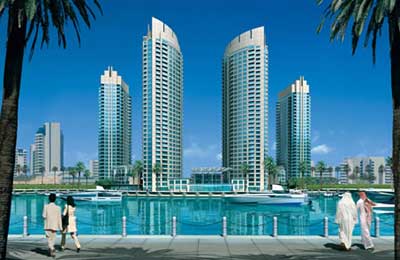
Dubai 'recovery may dent tenant's bargaining power'
DUBAI, March 1, 2017
Residential tenants in the UAE have benefitted from falling rents and a growing willingness by landlords to accept multiple cheques in recent years, but an expected real estate recovery – at least in Dubai – could again spur property owners to demand fewer installments from renters, said a report.
A decade ago, putting down an entire year’s rent upfront was the norm and those tenants whose employers did not offer such advances were often forced to borrow from the bank, increasing their overall housing costs, according to Propertyfinder, a UAE-based real estate portal.
Gradually, greater competition among landlords helped ease the burden on tenants and 2-3 cheques became the norm, with four cheques also common, albeit with renters often having to pay up to 10 per cent extra for the privilege of not paying a full year in advance, it stated.
“The current market has seen some power return to tenants - they can start to dictate more favourable terms and the amount of cheques is often one of those negotiation points,” remarked Lukman Hajje, Propertyfinder Group CCO.
Few tenants ask to pay in more than four cheques and it is rare for a landlord to accept a request for six cheques, said Mark Towers, managing director of Edwards and Towers, one of Propertyfinder.ae’s top brokerages.
“We believe we are some way off a market where 12 cheques or payments are the norm and as the market improves landlords will try to reduce the amount of cheques again,” said Towers.
That moment could be imminent. Consultants JLL believe Dubai apartment and villa prices are close to the bottom of their current cycle, after declining six and eight per cent respectively in 2016, and forecast the next price movement will likely be upwards.
Abu Dhabi rentals performed similarly last year, dropping four per cent for villas and seven per cent for apartments, and JLL predicts further drops to come.
A search of the nearly 24,500 Dubai apartments and villas advertised for rent on Propertyfinder shows only about one in six specify the number of cheques required.
Of those that do, 1,842 listings state tenants can pay in four cheques. A further 925 mention one cheque, 1,052 refer to two cheques and only 140 will permit 12, sai the report.
“As the labour force evolved and HR departments have started to lump housing benefit into salaries we have seen more of a need for landlords to accept more cheques,” said Towers.
“Ten years ago, employees would get a single rent payment from the employer but now it is added onto the salary and paid monthly. This puts a strain on tenants’ finances and they have no choice but to search for landlords who will accept multiple cheques,” he added.
Towers pointed out that the sustained slump in oil prices from mid-2014 led to cutbacks in the UAE energy sector, where labour force reductions have impacted the rental market.
Oil workers typically paid their rent in a single installment, so the downturn has forced an increasing number of landlords to be more flexible, he noted.
“Properties let on a single cheque two years ago are now let on a four-cheque basis,” he said.
In developed markets worldwide, the norm is for tenants to pay rent monthly, preferably through a direct debit from their bank account, but landlords in the UAE have shown little willingness to adopt this method.
That’s perhaps because tenants’ large upfront payments provide landlords with a hefty lump sum, although switching to monthly installments would help mortgaged buy-to-let investors budget their cash flow more easily, and again, making it easier on the tenant.
“We don’t believe more legislation is required to move towards a monthly payment structure,” noted Towers.
“It is more a matter of time for landlords to become accustomed to a new reality - a combination of economic factors has occurred over the past 2-3 years where companies are paying their employees differently and the new workforce is putting pressure on the landlords to adjust,” he added.-TradeArabia News Service







